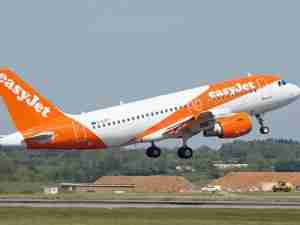Shares of China Southern Airlines Co., Asia’s biggest carrier by passenger numbers, surged to their highest ever after the company predicted its passenger yields would improve this year amid a surge in travel demand across the continent.
Oil prices are a risk to that outlook for yields, Tan Wangeng said in an interview Monday in Singapore, where he was attending the Singapore Airshow. Chinese carriers aren’t hedged for fuel, which makes up as much as half of operating expenses among Asian airlines.
The stock gained 4.9 percent to close at HK$10.70 in Hong Kong, the highest level since August 1997, when it first began trading, according to data compiled by Bloomberg. China Southern shares traded in Shanghai jumped 8.2 percent to 12.79 yuan, the highest closing price since August 2015.
Even after shares of China Southern and its state-owned rivals Air China Ltd. and China Eastern Airlines Corp. all surged in Hong Kong last year, some analysts predict there’s room for more gains as the carriers trade at a discount to some of their Asian peers, and their valuations, by some metrics, are still off peaks in the past five years.
The airline shares are climbing amid China’s easing of price controls for domestic destinations flown by at least five carriers in January, allowing a price hike of as much as 10 percent. That’s making connections to top-tier cities such as Beijing and Shanghai even more profitable for the airlines.
Prices of oil are manageable at current levels of about $70, airline executives including International Air Transport Association Chief Executive Officer Alexandre de Juniac and Dinesh Keskar, Boeing Co.’s senior vice president of Asia Pacific and India sales, said in Singapore, where they are attending the airshow. Brent traded at $68.02 a barrel as of 3:22 p.m. in Singapore.
China Southern’s international passenger yields fell 11 percent to 40 yuan (6.3 cents) in 2016, while domestic yields declined 3.6 percent to 53 yuan.
Tan also said the airline’s domestic flights of more than 1,000 kilometers aren’t affected by China’s expansion of high-speed rail. The distance by air between Beijing and Shanghai, for instance, is about 1,100 kilometers.
The impact of bullet trains is strongest for routes within 900 kilometers, and China Southern doesn’t fly many of such short-haul routes these days, Tan said.










